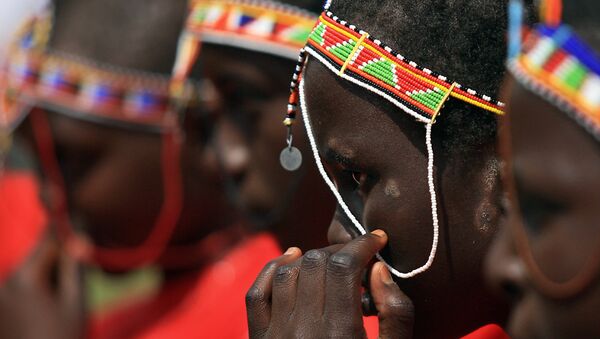In 2016, about 5,790 women and girls living in Ireland were subjected to some type of genital mutilation, a 53 percent increase compared to 2013.
According to Alwiye Xuseyn, manager of the Akina Dada wa Africa-AkiDwA (Swahili for "Sisterhood") organization, the estimates are based on 2016 data. The organization was established in Ireland in 2001 by a group of African women to support migrant women experiencing "isolation, racism and gender-based violence against women," its website states.
Female genital mutilation or circumcision is the removal of part or all of the external female genitalia and is a common practice among certain communities in 29 countries in western, eastern and northeastern Africa. The rite is considered in some communities to be an essential part of a woman's coming of age and is seen as a way of ensuring accepted community norms of sexual behavior and modesty and often a prerequisite for marriage.
It is considered a violation of human rights, as it can eliminate the possibility of sexual pleasure and can make sexual intercourse and childbirth painful and, in some cases, dangerous.
According to Dr. Katy Radford, director of the Institute for Conflict Resolution, the continued migration of women into Ireland from countries where female genital mutilation is performed has contributed to the rising numbers of women facing such violations.
Radford also told the Irish Times that it is "almost impossible to monitor" female genital mutilation because women may leave Ireland to have the procedure conducted in their home countries while on holiday.
"We are particularly uninformed about the extent of the practice. The safeguarding of girls and young women has to be a concern," Radford said.
The conference held Tuesday, titled "Dare to Dialogue," was hosted by Akina Dada wa Africa-AkiDwAto raise awareness and engage men and faith leaders in strategies to curb male violence against women.
Alan O'Neill, a member of the Men's Development Network, an organization in Ireland that is committed to working in alliance with women's organizations to improve the lives of men and women, revealed that his organization has been hosting workshops for men to educate them on "toxic masculinity," male behaviours considered normal in patriarchal societies that are increasingly being seen as harmful to both men and women.
O'Neill also expressed his belief that changing how male and female roles are perceived in societies will take time.





